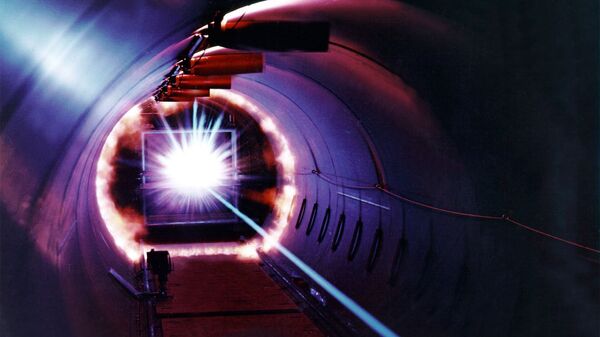Researchers, Zeng Yu-quang, Wang Zhi-hong, and Gao Ming-hui first wrote about the notion of a space-based laser weapon in 2013 in the Chinese Optics journal. All three scientists work for leading laser-weapons technology organization the Institute for Optics, Fine Mechanics and Physics.
"In future wars," they wrote, "the development of ASAT [anti-satellite] weapons is very important…Among those weapons, laser attack system enjoys significant advantages of fast response speed, robust counter-interference performance and a high target destruction rate, especially for a space-based ASAT system. So the space-based laser weapon system will be one of the major ASAT development projects."
If Beijing’s military, which oversees the country’s space program, provides the funding for the scientists’ proposed five-ton chemical laser, it could be operational by 2023. The weapon would be capable of destroying enemy satellites in orbit from its position in lower Earth orbit.
A ground-based radar would be used to identify a target satellite, according to the article, with precise targeting ensured by a special camera. The beam of the laser would be focused by a membrane telescope.
The article revealed that, "In 2005, we have successfully conducted a satellite-blinding experiment using a 50-100 kilowatt capacity mounted laser gun in Xinjiang province…The target was a low orbit satellite with a tilt distance of 600 kilometers. The diameter of the telescope firing the laser beam is 0.6 meters wide. The accuracy of [acquisition, tracking and pointing is less than 5 [microradians]."
While giving congressional testimony last month before Congress, China military-specialist Richard Fisher, from the International Assessment and Strategy Center, confirmed that China had a laser weapons program and warned that Beijing could be rapidly militarizing space.
Asia Times quoted Fisher saying, "The Chinese government would not hesitate to use the lives of its astronauts as a shield to deceive the world about the real purpose of its space station,"and, "Having gained the advantage of surprise, the combat space station could begin attacks against key US satellites, thus blinding the US to the launch of new combat satellites that would attack many more US satellites."




